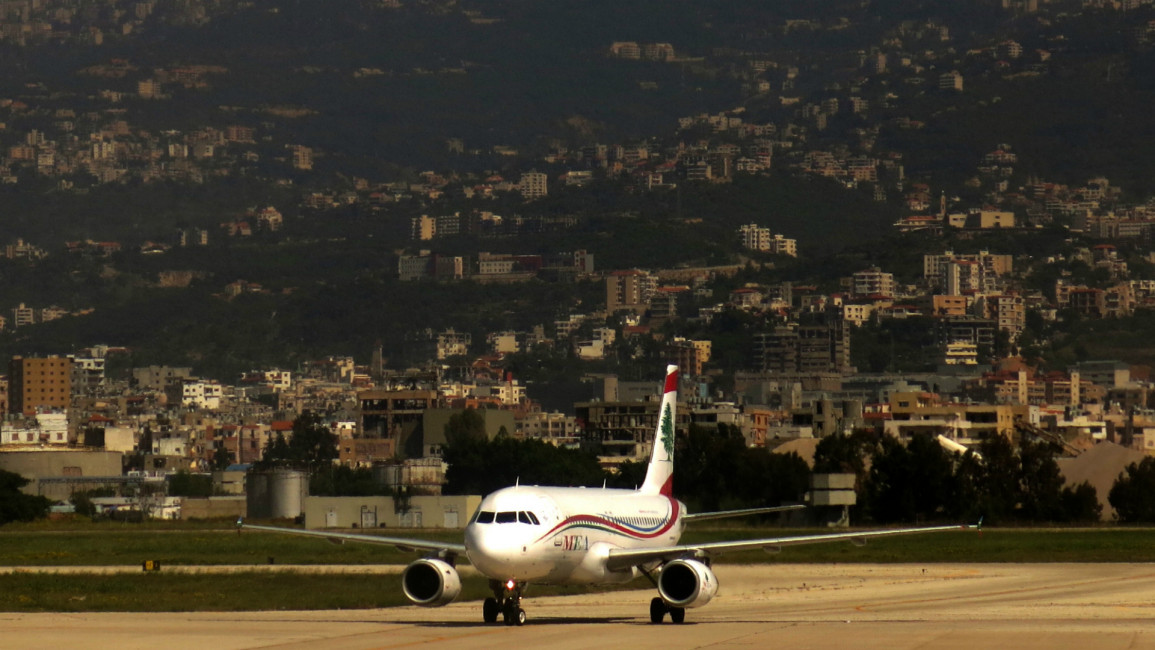Lebanon air traffic control woefully understaffed: report
Lebanon's air traffic control (ATC) is woefully understaffed with controllers sometimes enduring 24-hour shifts and working 96 hours a week, according to a report.
Inspectors of Rafic Hariri International Airport in Beirut filed a damning report highlighting serious safety concerns and urging immediate action by aviation authorities in Lebanon.
The pre-audit report carried out by the European Union Aviation Safety Agency (EASA) and International Civil Aviation Organisation (ICAO) flagged "systemic deficiencies" with air navigation services (ANS) in Lebanon, including air traffic control and other vital aviation services.
Most alarming were the shortfalls in staffing - an apparent fallout of Lebanon's economic crisis that saw the lira plummet and a devastating brain drain from the country.
"ATC staff shortage is a serious safety issue, which could have critical repercussions for aviation in Lebanon," the report states, according to The National.
It added that the "recruitment and retention of appropriately qualified and experienced ATS staff" was "a matter of utmost urgency" and stressed the "crucial importance" of urgent action by authorities.
A source told the UAE-based daily that ATC staff were sometimes working 24-hour shifts and five-hour stretches without break, while 72 to 96 hours work weeks were not uncommon.
This and other issues are in stark contrast to international ATC norms. The EU advises controllers to work four eight-hour shifts with two subsequent rest days and one-and-a-half hour stretches followed by a half-hour break during work days.
"There are currently only 15 certified air controllers, whereas the standard requirement would be 87," a source from the Lebanese civil aviation department told the newspaper.
"Air-traffic controllers have consistently faced a shortage of staff but due to the crisis, which initially resulted in major salary cuts, a number of employees made the decision to leave the country."
Beirut airport operates with just one controller and an assistant for support when four controllers and a supervisor is the norm elsewhere in the world. The sources also told the UAE daily that ATC staff are often underqualified or lack the necessary experience for the role.
"The job is inherently stressful but Lebanon has taken it to an entirely new level. Air-traffic controllers are drained and pushed to their limit," the source said.
"Air-traffic controllers have tried over the years to demand employment and training with all successive ministers to avoid this situation, in vain."
Hundreds were left disabled or chronically injured by the Beirut blast 3yrs ago. Many started an activist group last year, and their demands are simple: they want compensation for the injuries caused by the blast, justice, and accessible spaces as Beirut rebuilds itself. pic.twitter.com/iKbTfeGnMK
— The New Arab (@The_NewArab) August 4, 2023
Caretaker Public Works Minister Ali Hamie recently pledged to hire more staff but there appears to be deep issues in moving forward with recruitment, least of all money.
Media reported that in 2018, none of the 20 qualified air traffic controllers - mostly Muslim - who passed a recruitment exam were approved by the president - who is always Christian - due to fears of creating a "sectarian imbalance" in the industry.
The New Arab has approached Lebanese aviation authorities for comment about the claims in the report but received no response by the time of publication.
Beirut has seen a slew of air safety issues in recent years, including the potential dangers caused by unauthorised Israeli military aircraft flying through Lebanese airspace to strike Syria.
In 2016, Lebanese authorities detained two Beirut airport workers over suspected links to a terrorist group.
Last year, two Greek F-16s escorted a Lebanese airliner carrying a 145 passengers through Greek airspace after pilots reportedly failed to respond to ATC on the ground.



